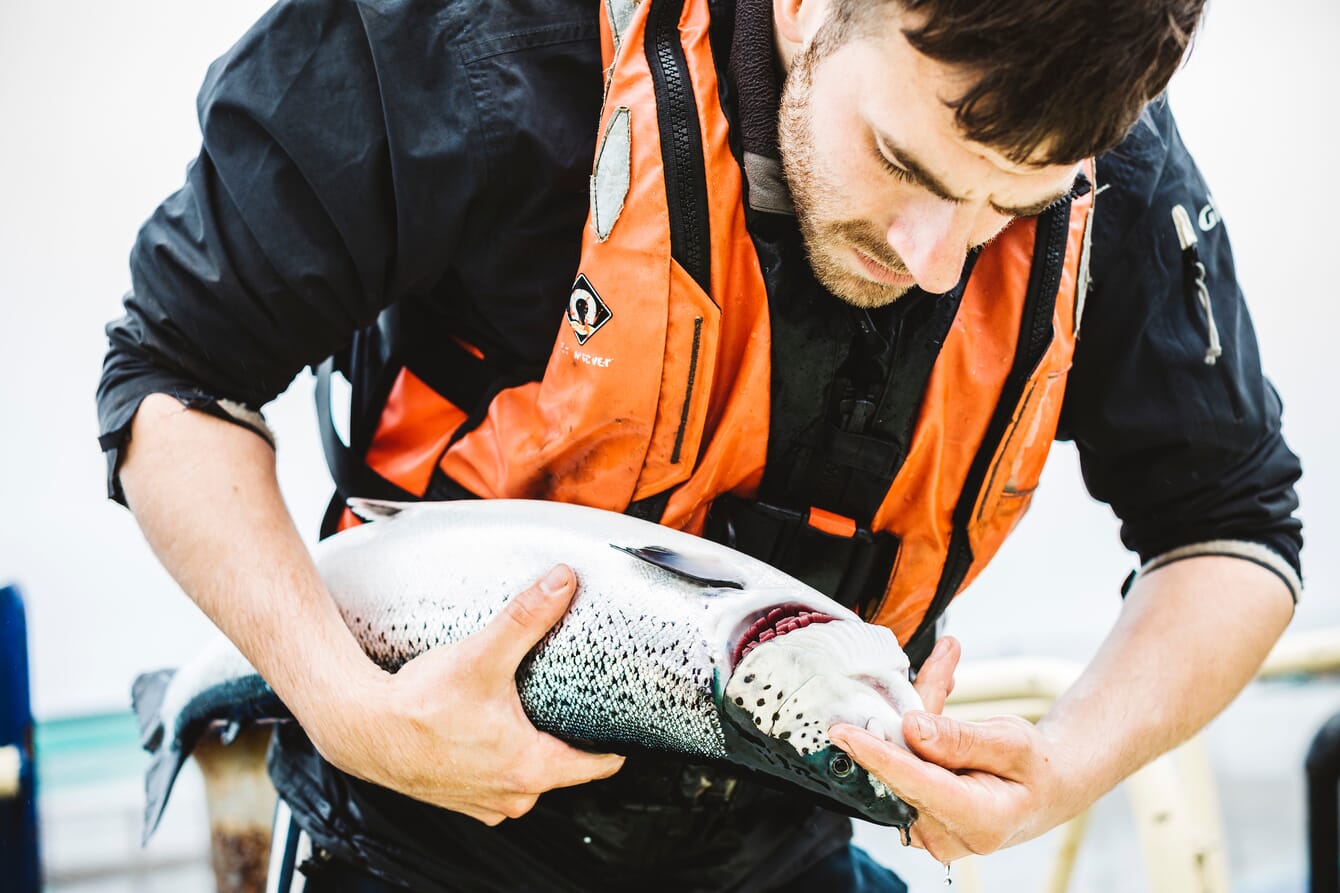
© Scottish Sea Farms
Fishermen, fish farmers and companies in the extended supply chain have warned that the introduction of Highly Protected Marine Areas (HPMAs) will destroy aquaculture and commercial fishing activities which are cornerstones of the Orkney economy.
The proposals prevent any form of fishing or aquaculture within or close to an HPMA, including cessation of existing activity.
Ministers have pledged to designate at least 10 percent of Scottish seas as HPMAs within three years, on top of the 37 percent of Scottish seas which are already protected under law. They claim that the strictly enforced new zones will conserve marine ecosystems while continuing to provide economic and social benefits.
However, Orkney seafood representatives said a lack of baseline data, combined with an absence of defined tools and methodologies to measure the success of the HPMAs, undermines the ability of the policy to achieve its environmental objectives.
There are fears that the government’s 2026 deadline will see HPMAs rushed through without proper scrutiny of how they will work in practice or an understanding of the significant socio-economic impacts resulting from the proposed restrictions.
In the UK, Defra (the Department for Environment, Food and Rural Affairs) agreed to trial HPMAs – which cover just 0.53 percent of English waters - to test their effectiveness as a conservation measure and to gauge their social and economic impacts.
The Scottish government has chosen not to do this and, as a result, is placing the livelihoods of coastal and rural communities at risk, said seafood leaders.
Fishing and aquaculture in Orkney directly employ more than 390 people, as well as the hundreds of supply chain jobs in more than 30 enterprises.
Scottish Sea Farms' head of sustainability, Anne Anderson, said in a press release: “One aim of HPMAs is to enhance the benefits that coastal communities and others derive from our seas. But the ban on aquaculture and fishing in these areas is absolutely contradictory to achieving this aim, given their importance as sources of employment and investment in these communities.
“Furthermore, the proposals insist that impacts will not be disproportionately focused on some sectors. But while existing developments for marine renewables, ports, harbours, marinas, cables and pipelines, as well as oil extraction, are allowed to remain, because they are either defined as being of national importance or cannot be relocated, recoverable sectors such as aquaculture and fishing activity are excluded.”
Orkney supplier Julius Garrett added: “The proposed HPMAs would be devastating not just to the aquaculture and fisheries sector in Orkney but also to the hundreds of jobs in the supply chain which depend on these businesses.
“Our small business, Garrett Bros, provides local haulage and HIAB crane services in Orkney, and the majority of our income comes from clients who are aquaculture producers. Without the aquaculture supply chain in Orkney, we couldn't operate.”
Opposition to HPMAs has also come from the Communities Inshore Fisheries Alliance, which represents creel fishermen, mobile fishermen, line fishermen, dive fishermen, and other small family businesses, from Orkney, to the Western Isles, to the Clyde.
And last week, Shetland Island Council unanimously supported a motion instructing their officers to oppose HPMAs in the ‘strongest possible terms’. Western Isles councillors, too, said the proposals would be “devastating” for the local economy.
The seafood sector in Orkney is calling on individuals and organisations in the islands to read and respond to the Scottish government’s consultation on the HPMA proposals, which closes on 17 April.



